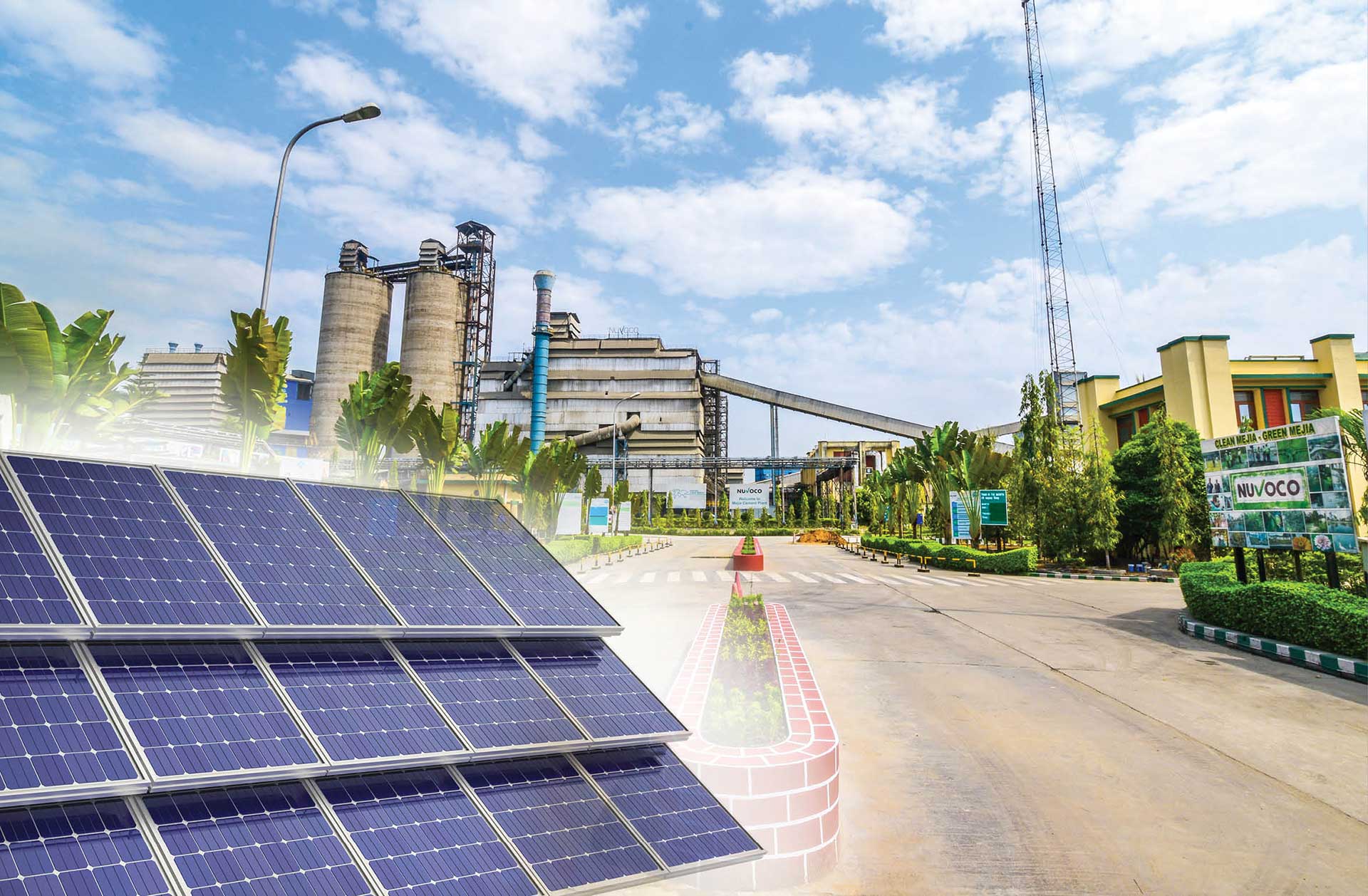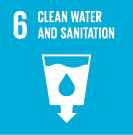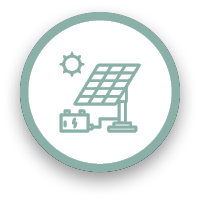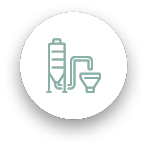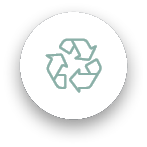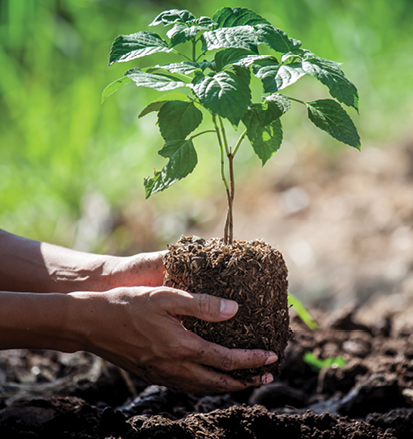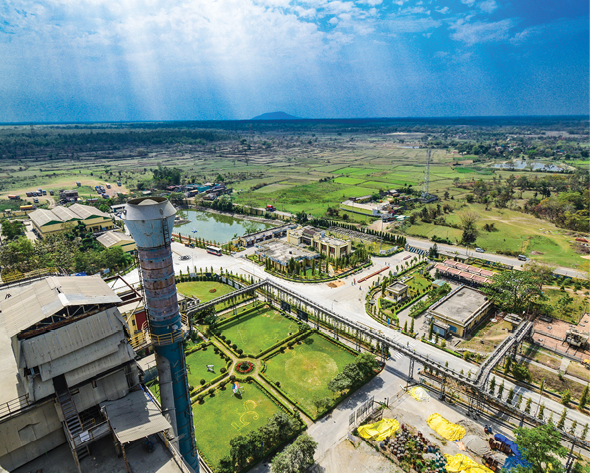| 301-1 - Materials used by weight or volume |
i. Non-renewable materials used (Natural Materials - Raw meal including limestone, sand & aggregates) - tonnes |
1,53,28,704 |
2,39,39,237 |
| ii. Reused materials (Flyash, Slag & Chemical Gypsum) - tonnes |
78,72,062 |
79,70,393 |
| 301-2 - Recycled input materials used |
Percentage of Recycled/reused input materials used to manufacture the organisation's primary products and services |
34.00% |
24.98% |
| 302-1: Energy consumption within the organisation |
Total fuel consumption within the organisation from non-renewable sources (GJ) - Includes alternate fuels other than biomass |
4,15,04,205 |
3,68,87,685 |
| Total fuel consumption within the organisation from renewable sources (GJ) |
Nil |
Nil |
| Electricity consumption (GJ) - Grid |
9,69,046 |
25,66,731 |
| Electricity consumption (GJ) - (WHRS & Solar) |
9,29,504 |
9,16,531 |
| Total energy consumption (GJ) |
4,24,33,708 |
4,03,81,098 |
| 302-3: Energy intensity |
Energy intensity ratio for the organisation (GJ/tonne of Cementitious materials) |
2.28 |
2.11 |
| *Specific Heat Consumption (Kcal/Kg Clinker) |
711.2 |
712 |
| 303-3: Water withdrawal |
Total water withdrawal from all areas (Kilo Litres) |
29,22,372 |
29,79,395.00 |
| Total process + domestic withdrawal (Kilo Litres) |
22,43,124 |
|
| Total water discharge to all areas in megalitres, and a breakdown of this total by destination |
Implements ZLD at all sites |
| 303-5: Water consumption |
Total water consumption from all areas (Kilo Liters) |
29,22,372 |
29,79,395 |
| Total process + domestic consumption (Kilo Liters) |
22,43,124 |
- |
| 305-1: Direct (Scope 1) emissions |
Direct (Scope 1) GHG emissions in metric tons of CO2 |
85,01,933 |
61,47,691 |
| 305-2: Indirect (Scope 2) emissions |
Indirect (Scope 2) GHG emissions in metric tons of CO2 |
1,69,250 |
3,85,866 |
| 305-4: GHG emissions intensity |
GHG emissions intensity ratio for the organisation (in KgCO2/TCM) |
457 |
462 |
| 305-7: NOx, SOx, and other significant air emissions |
SOx - tonnes |
1,084 |
871 |
| NOx - tonnes |
7,990 |
12,175 |
| PM - tonnes |
835 |
1,024 |
| 306-2 - Management of significant waste-related impacts |
Actions, including circularity measures, taken to prevent waste generation in the organisation’s own activities and upstream and downstream in its value chain, and to manage significant impacts from waste generated. |
Please refer page 64 |
| If the waste generated by the organisation in its own
activities is managed by a third party, a description of
the processes used to determine whether the third party
manages the waste in line with contractual or legislative
obligations.
The processes used to collect and monitor waste-related
data |
| 306-3: Waste generated |
Total waste generated (tonnes) - (Plastic, E-Waste, Biomedical, Batteries, Hazardous and Flyash) |
2,44,102.78 |
4,21,127 |
| 306-4: Waste diverted from disposal |
Waste recycled and reused (tonnes) |
2,43,663.52 |
4,20,871 |
| 306-5: Waste directed to disposal |
Waste disposed (tonnes) |
4,949.5 |
1,020 |
